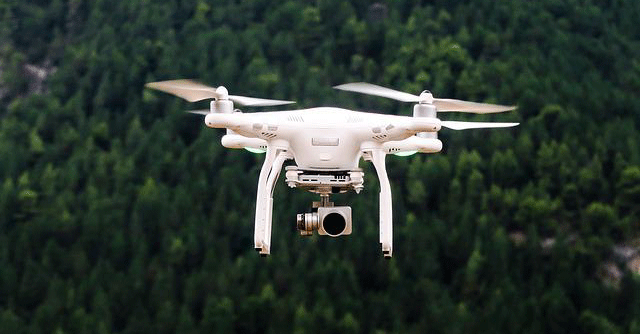
ICMR publishes guidance document on drone-based healthcare delivery for state health authorities


Aiming to create an enabling environment for use of drones in India’s healthcare system, the Indian Council of Medical Research (ICMR) has released the ‘Guidance Document for use of drones in Healthcare’ to handhold state health authorities with effective deployment strategies for drone-based delivery of medical supplies.
The apex medical research institute has published this paper based on the field experience from Manipur and Nagaland. The scientists from ICMR collaborated with Ministry of Civil Aviation (MoCA), Government of India, Directorate General of Civil Aviation (DGCA), Airport Authority of India (AAI) to produce this document in compliance with the New drone Rules-2021 which highlights the ways of selecting drones, choosing takeoffs and landing sites etc.
Medical items such as measles, mumps, Covid-19 vaccines with storage temperature between 2°C to 8°C, tablets and capsules, syrups in bottles, gloves, syringes, blood bags, diagnostic biological tissues, urine, blood, sputum, saliva or frozen specimens can only be transported following this guidance.

“As a nation with 1.3 billion, we have faced several challenges in upgrading our healthcare system. The covid pandemic further added to this challenge but also gave us an opportunity to revisit some of the issues and fix them. With the advent of covid-19 vaccines, ICMR envisaged the delivery of these vaccines to hard-to-reach-terrains in India. This guidance document will assist in understanding different nuances involved in planning and execution of drone-based delivery of medical supplies,” Prof Dr Balram Bhargava, Director General of ICMR said.
Since the usage of drones in the healthcare sector is a relatively new venture in the country, there are possibilities of confusion and lack of clarity on standard operating procedures, stated Prof Bhargava.
The scope of this document covers areas such as how to obtain regulatory approvals from competent authorities for various kinds of drones and utilising air space for delivering medical supplies restricted to medicines, vaccines and surgical materials.

Besides, it underlines the ways of selecting suitable drone models and criteria for choosing take-off and landing points for drones and what type of medical supplies can be delivered via drone. The documents also explain how to make preparations carrier boxes, loading and unloading of carrier boxes and quality checking of the medical supplies pre and post flight. Most importantly, its paper elaborates the requirement of human resources for drone-based delivery and the training needs of healthcare workers.
“First, we conducted dry-run at IIT- Kanpur and then we started pilot in Northern states such as Manipur and Nagaland. The most important point to remember is the training of healthcare workers in terms of data recording, management for analysis, validation purposes, handling any unforeseen events during field operations. Besides, choosing the right kind of drone and facilities are some of the important points which we have talked about. States can take benefit from this paper,” said Dr Samiran Panda, Additional Director General of ICMR who is also principal investigation of drone-based healthcare delivery project.
“Drone technology has a potential to create revolutionary changes in almost all sectors of the economy and public welfare—like medical deliveries, search and rescue, agriculture and infrastructure development, law and order and national security to name a few,” Amber Dubey, Joint Secretary, Ministry of Civil Aviation stated in the document.

